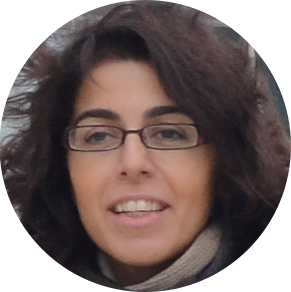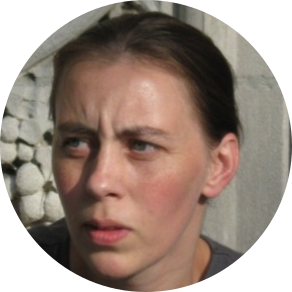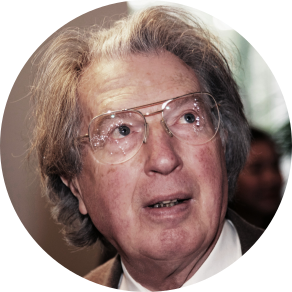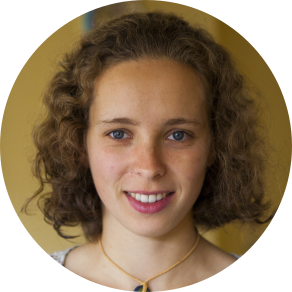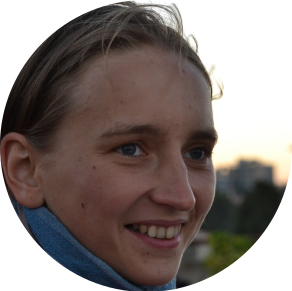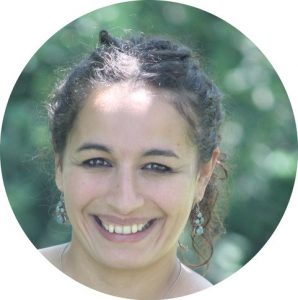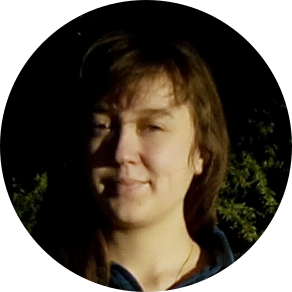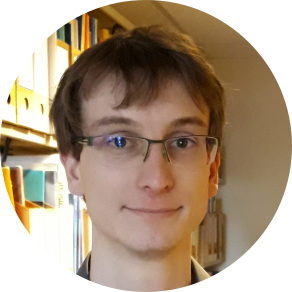Fatma Sinem Eryılmaz
Research Associate (Adjunct Professor History, Universitat Autònoma de Barcelona)
Sinem Eryılmaz works on intellectual history of the pre-modern Islamic Mediterranean with a focus on the Ottoman world. She is particularly interested in the relationship between political authority and knowledge (both philosophical and mystical) and its representation in social, political, intellectual, and artistic networks from al-Andalus to Central Asia. As part of PhilAnd project, Sinem is pursuing her exploration of the footprints of the Ikhwān al-Ṣafā’ in the Ottoman and pre-Ottoman eastern Mediterranean, in close collaboration with Godefroid de Callataÿ.
Cécile Bonmariage
Chercheur qualifié / Research Associate (Fonds de la Recherche Scientifique, FRS-FNRS; UCLouvain, Institut supérieur de philosophie)
Cécile Bonmariage specialises in pre-modern Islamic intellectual history, more specifically history of philosophy and speculative mysticism in the Islamic context. Her publications reflect a predilection for the Avicennian and Akbarī traditions, and for the post-classical period. Other aspects of her work include research on translations from Greek into Arabic, the influence of Avicenna’s theories in a broader milieu, as well as practical aspects of the manuscript culture in Islamicate societies, and occasional detours into editing magical recipes based on the science of letters.
Bruno Halflants
Independent searcher
Bruno Halflants was involved in various major projects during his first career as a civil engineer. He has cultivated his interest in Arabic since 1978, focusing on Arabic poetry and metrics, and in 1998 he obtained a master’s degree in Arabic. In 2007, he published Le Conte du Portefaix et des Trois Jeunes Femmes, a study of Middle Arabic in the 1001 Nights, with an original edition of the tale’s earliest-known manuscript. Further to this, he has participated in several conferences and seminars and has contributed to Autour de la Langue Arabe, a Festschrift volume in the Publications de l’Institut Orientaliste de Louvain. In 2011, together with Godefroid de Callataÿ, he has published in the Epistles of the Brethren of Purity Series (Oxford University Press, in association with the Institute of Ismaili Studies) the edition and the annotated translation of the short version of the Epistle ‘On Magic’ (52a). Together with Godefroid de Callataÿ and Sébastien Moureau, he is currently working on the long version of the same epistle (52b).
Marion Dapsens
Phd student (F.R.S.-FNRS, UCLouvain)
Marion Dapsens is a doctoral student at the University of Louvain. In her research, she focuses on the occult sciences and the history of alchemy. After her humanities in Schola Nova, she studied classical and oriental languages and literature at the University of Louvain and at the Università degli Studi di Bologna. She was on a Ph.D.-fellowship from the Universität zu Köln until 2017 and is now an F.R.S.-FNRS grantee to write a Ph.D. dissertation on Arabic alchemy under the supervision of Sébastien Moureau and Cécile Bonmariage. She is currently preparing an annotated critical edition of the Risālat Maryānus, attributed to Prince Khālid ibn Yazīd (d. 704), as well as of its Latin translation known as De Compositione Alchemiae (by Robert of Chester in 1144).
Gregory Vandamme
PhD student (FNRS-FRESH)
Gregory Vandamme is a PhD candidate (FNRS-FRESH) working on classical Sufism, with a particular interest in the works of Ibn ‘Arabī and his school. His research pays attention on transmission and transformation of doctrines from Early Sufism to Akbarian thought. He received a Bachelor in History (cum laude) at the Saint-Louis University, Brussels, and a Master in Religious studies (magna cum laude) at the University of Louvain. His master thesis explored the metaphysical, theological and anthropological functions of Adam in the thought of Ibn ‘Arabī, with a deeper focus on his correlation with the Prophet Muhammad.
His current PhD research, under the supervision of Pr. Cécile Bonmariage (FRS-FNRS / University of Louvain), seeks to provide an analytic synthesis of the notion of hayra (« perplexity », « bewilderment » or « confusion ») in Ibn ‘Arabī. Focusing mainly on his Futūḥāt makkiyya, the study highlights the ambivalent yet absolutely central use of this notion, regarding questions of Epistemology, Quranic Hermeneutics, or Spiritual path. From September to December 2017, he studied with Pr. James Morris (Boston College) and participated in his Harvard Ibn Arabi Seminar. He also made several study and research stays in France, Morocco, Algeria and Tunisia. In addition to his main researches, he has a deep interest in Comparative Theology, and is concerned with the contemporary use of Ibn ‘Arabī’s thought, and the possibility to use some of his paradigms in order to build a new discourse, inside Islam and about Islam.
Odile Dapsens
PhD student (University of Orléans, UCLouvain), fellow of the University of Orléans
Odile Dapsens is a PhD student working on the transmission of Hebrew magic texts to the Christian world during the Middle Ages. After completing a curriculum of Greek-Latin Studies at Schola Nova (Belgium), she studied History at the University of Louvain, with a specialization in Oriental languages (Hebrew and Greek). Under the direction of Jean-Patrice Boudet (University of Orléans) and Paul Bertrand (University of Louvain) she is preparing for her Ph.D. the critical edition of a Latin version of the Sefer ha-Razim (8th-9th centuries), the most famous Jewish text on magic from the Middle Ages. This edition will be accompanied by a French translation and a comprehensive commentary on the different aspects of the transmission of this treatise.
Kabira Masotta
Post-doctoral researcher UCLouvain
Kabira Masotta is a postdoctoral researcher at the RSCS institute in UCLouvain. Her work focuses on classical Sufism, more precisely on zuhd. After a Master in history at Paris Sorbonne, she obtained a PhD in Islamic studies under the supervision of Pierre Lory at the École Pratique des Hautes Études. Her PhD dissertation, based on Abū Nuʿaym’s Ḥilyat al-awliyā’ wa-ṭabaqāt al-aṣfiyā’, aims to define the contours of Islamic sainthood (walāya) during the first three centuries of Islam, as progressively defined in the hagiography from the 4th century (AH). The study mainly strives to analyse the language and spiritual practice of the early ascetics through three hermeneutic criteria: the ‘Judaising’ traditions (isrā’iliyyāt), Quranic exegesis and, lastly, the Sunna and figure of the Prophet, putting them into perspective with the language and spiritual practice of the 3rd and 4th century Sufis. Her current research focuses specifically on “eschatological experiences” of the first generations of ascetic and Sufi scholars from the byzantine border. She particularly explores how ascetic piety (zuhd) in ǧihād context translates into a paradoxical notion: tasting the intimacy of separation from God.
Doriane Moenaert
Assistant, PhD student UCLouvain
Doriane Moenaert’s research focuses on Latin alchemy of the 12th-14th centuries. She studied classical philology in Louvain-la-Neuve and at the Università degli studi di Bologna, after which she did a year’s research in Bologna, at the Collegio dei Fiamminghi, on 17th-century medicine and more particularly on fevers. Since September 2019 she has been employed at the University as an assistant in classical philology and has started a thesis under the supervision of Sébastien Moureau. She is working on fermentum in Latin alchemy and medicine of the 12th-14th centuries.
Guillaume Delmeulle
PhD student UCLouvain
Guillaume Delmeulle is working on the history of alchemy. After studying classical and oriental philology at the University of Louvain, he is currently working on an alchemical treatise of the 13th century, the De perfecto magisterio. Under the supervision of Sébastien Moureau, he is preparing a critical edition, a French translation and a thorough commentary of this text.
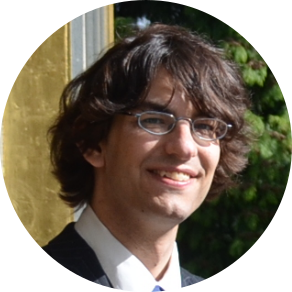
Grégory Clesse
Postdoctoral researcher (FNRS, UCLouvain)
Grégory Clesse is postdoctoral researcher at UCLouvain (F.N.R.S., Chargé de Recherches). His current project, supervised by Prof. Sébastien Moureau, aims at providing the first critical edition of Isaac Israeli’s De urinis, based on a thorough philological study of the Latin tradition and on a close comparison with the original Arabic text. This edition will be presented together with a French translation of the text and a historical commentary around this medical work.
Previously, Grégory Clesse carried out his PhD in the frame of the ARC Speculum Arabicum, which aimed at objectifying the contribution of the Arab-Muslim world to the History of Sciences and Ideas through a cross-disciplinary approach. Especially, his thesis consisted in the study of Arabic sources in the thirteenth-century Latin encyclopaedias (Liber de natura rerum of Thomas of Cantimpré, De proprietatibus rerum of Bartholomaeus Anglicus, Speculum naturale of Vincent of Beauvais, etc.). Therefore, his doctoral dissertation provided an evaluation on a truly scientific basis of the effective incorporation of knowledge originating in the East. After his PhD, from 2016 to 2019, Grégory Clesse also took part in the Averroes Edition Project, at the Thomas-Institut (University of Cologne, Germany), as Leading Latin editor. On a larger scale, his investigations cover the Latin reception of Arabic philosophy in the field of Natural Sciences, with a comparative approach between Arabic, Hebrew and Latin. He pays special attention to Biology, Medicine and Zoology in the Latin thirteenth and fourteenth centuries, having special interest in questions related to the translation process from Arabic into Latin.
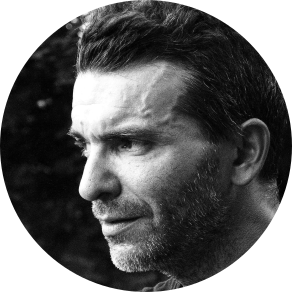
Nicolas Thomas
Ingénieur de recherche à l’Institut national de recherches archéologiques préventives (Inrap), member of the Laboratoire de médiévistique occidentale de Paris (LaMOP), fellow of the WBI program for the year 2021 as an invited researcher at the UCLouvain.
Doctor of the University Paris 1 Panthéon-Sorbonne, archaeologist for more than twenty years, he is a specialist in medieval metallurgy and alchemical laboratory. In his work, he uses archaeological and written sources by associating them with material analyses and experimentation both in the laboratory and in the field. His research is currently focused on the transmission of know-how in workshops as well as in alchemical texts. He works in particular at the CIOL with Sébastien Moureau on the transmission of technical knowledge between East and West and on tacit and implicit knowledge.
